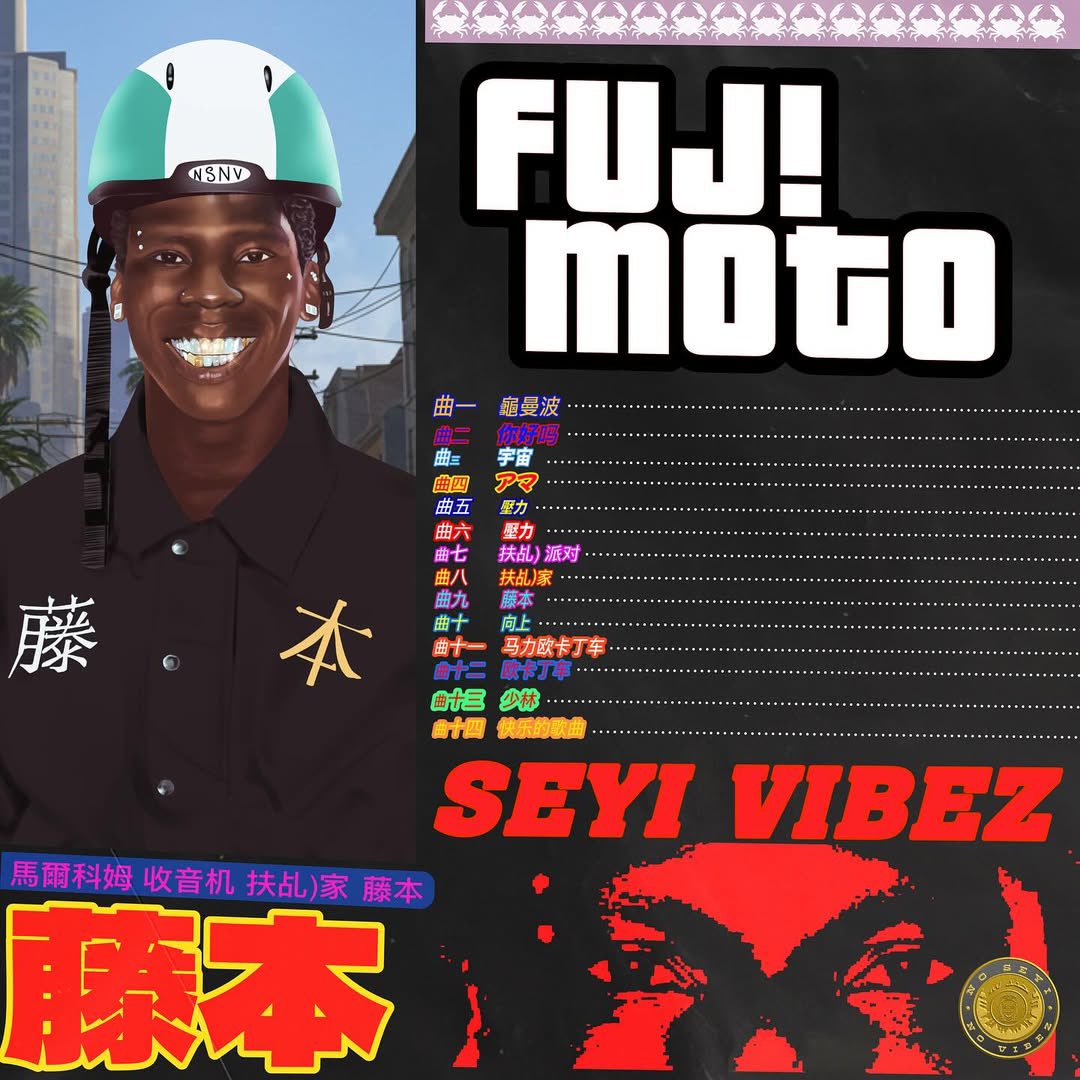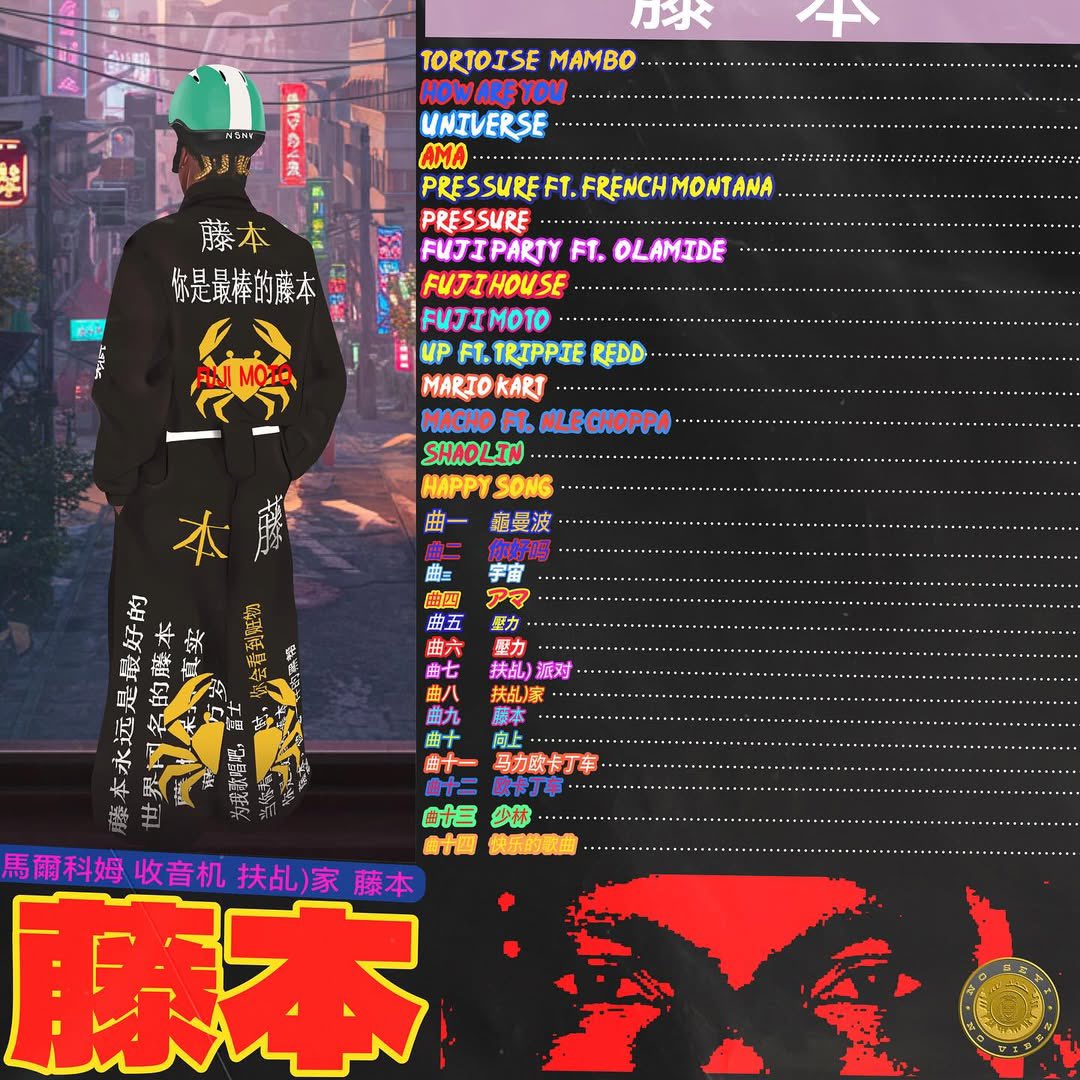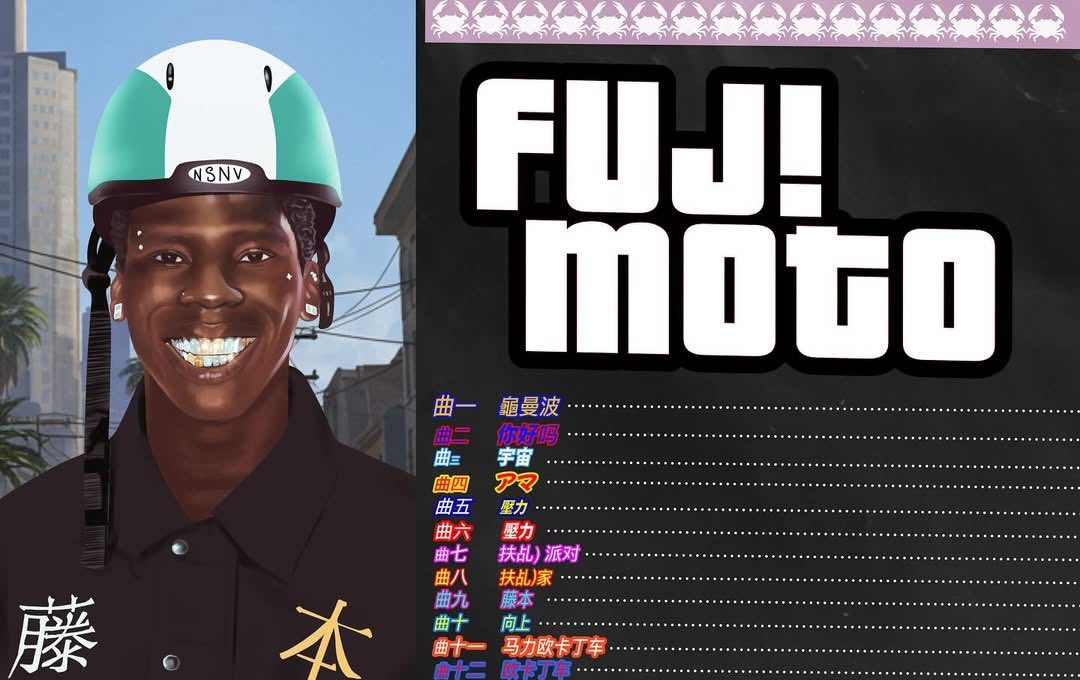More problematically, for a project ostensibly designed as homage to Fuji, Fuji Moto is curiously devoid of the genre’s essential DNA.
By Abioye Damilare Samson
The history of Nigerian Pop music remains incomplete without acknowledging its diverse foundational elements, among which Fuji stands as a towering cornerstone. The genre traces its roots to Were music (or ajisari), a call-and-response-driven style similar to a Muezzin’s call to prayer, performed in the 1950s to keep Yoruba Muslims engaged in the early hours of the morning during Ramadan, and has profoundly shaped modern Nigerian pop across multiple dimensions.
Its transcendent influence is evident in the recent surge of Nigerian artistes drawing from the genre’s deep well, whether through sampling and interpolating vintage Fuji records or using it as a fusion template to forge something entirely new.
Seyi Vibez has long been one of the most adventurous and inquisitive explorers of this terrain. His catalogue reflects a restless, experimental approach, drawing from a wide array of influences and stitching them into songs that often surprise in their cohesion, with Fuji frequently serving as the centrepiece of his sonic explorations. It was only natural, then, that he would eventually attempt a full-bodied tribute to Fuji, much like Adekunle Gold did with his sixth album, FUJI.
His previous project, Children of Africa EP—released earlier this year after parting ways with his long-time label, Dapper Records—offered early hints of a new frontier, with its nostalgic Nintendo synths and nimble techno elements. On his new album, Fuji Moto, however, all those scattered clues coalesce into a fully realised vision.
Notably, the decision to write Fuji Moto’s tracklist in Chinese characters is a deliberate conceptual statement, drawing a direct line to the genre’s origin story of how Fuji pioneer, Sikiru Ayinde Barrister, coined the name after encountering a poster advertising Mount Fuji, Japan’s iconic volcanic peak. By invoking East Asian aesthetics, Seyi Vibez mirrors that same cross-cultural inspiration that gave the genre its name.

Fuji Moto opens with “Tortoise Mambo”, ushered in by cinematic violins before Seyi Vibez’s braggadocio cuts through. He sings, “Mọ́ lè kọrin bi Saheed Osupa, Mọ́ lè kọrin bi Ed Sheeran, Mọ́ lè kọrin bi Bob Marley”, name-dropping icons across genres and asserting his versatility with confidence. It’s a declaration that he is just as comfortable channelling the Fuji sound as he is navigating British Pop balladry, Reggae, or any musical style he chooses.
The pre-released “How Are You (My Baby)” finds Seyi Vibez at his most assured. Built on a 3-step propulsive groove and interpolating Bobby Caldwell’s 1978 soul classic “What You Won’t Do for Love”, the track has him gliding effortlessly across Afro-Tech’s punchy percussion and the off-kilter syncopation of broken beat, with DJ scratches. The children’s background harmonies add textural layers, while his vocal delivery drips with sensual longing.
Children’s voices reappear on “Universe”, an uptempo celebration anchored by thundering log drums. Seyi Vibez elevates romantic devotion to a grand, limitless scale by regarding his lover as the very centre of his universe: “Baby my universe (universe!), Universe (universe!), In this universe (universe!), Please don’t do me bad (do me bad)”, he sings.
Away from the gritty, kinetic energy of earlier tracks, Seyi Vibez slows down on “AMA”, and delivers a deeply romantic and introspective performance. The songwriting itself feels more deliberate than much of his recent output: “I get my peace from her/ How you paint the world in every shade and colour/ That’s why I can’t outrun her/ Cause no matter how far I go/ Her love gets closer”, he croons. Yet, it’s difficult to separate the sonic fabric of “AMA” from that of the pre-released “Pressure” featuring French Montana; both tracks share a similar flow and thematic focus that reveals Seyi Vibez’s intentionality in expressing love with depth.
Fuji Moto’s pace shifts into an even higher gear on “Fuji Party” featuring Olamide. It’s a fast-paced, log-drum-driven record, accented with the airy brightness of a Japanese end-blown bamboo flute. Seyi Vibez’s delivery ricochets wildly, a scattergun burst that matches Olamide’s own freewheeling energy, but the lyrics feel banal, offering little beyond the frenzy, and even the thundering log drums can’t save it. Like its companion track “Fuji House”, “Fuji Party” is rave-ready, clearly rooted in Mara sound, the hyper-fast, adrenalised rhythm currently dominating TikTok’s frenetic dance trends.

Larrylanes-produced “Fuji House” is similarly kinetic, laced with electronic log drums, talking drum touches, and an undercurrent of keyboard strings. Unlike “Fuji Party”, however, “Fuji House” bears noticeable Fuji elements in its percussion and in the hailing and name-dropping tradition that has long defined Fuji performance.
The titular track, “Fuji Moto”, slows the pace, returning to the Ajiwere roots from which Fuji emerged. Seyi leans closer to the cadences of traditional wake-up chants, singing about joy, gratitude, and soft living: “Every day we dey turn up / Sundown till sun up / Ju ba folorun”.
Fuji Moto closes out with “Up” featuring Trippie Redd. It’s a lively, motivational anthem propelled by a soaring female-sung chorus: “You gotta keep your head up, there’s gonna be better days”. And while the chorus drives the song’s uplifting message, Trippie Redd contributes a compelling verse, while Seyi Vibez grounds the track with a reflective delivery, framing his personal journey as a source of resilience and encouragement.
With the album’s final emotional lift on “Up”, Fuji Moto would have ended on a clear narrative wrap-up. Instead, the album incorporates four tracks, “Mario Kart”, “Macho” featuring NLE Choppa, “Shaolin”, and “Happy Song”, from the previously released Children of Africa EP, extending the project into a broader, more expansive chapter.
Across its 33-minute runtime, Fuji Moto grapples with a fundamental incoherence that undermines its conceptual ambitions. Too many tracks feel listless, and lack spark despite the album’s strong production. The project meanders when it should soar, as it substitutes genuine emotional depth with surface-level banalities.
Exceptions like the tracks “Pressure” and “Up” shine as moments of true brilliance, where intention and execution align harmoniously, while the Children of Africa EP tracks inject much-needed vitality into the album’s latter half.

The ambition is evident: Seyi Vibez clearly aims to synthesise disparate sonic fragments into something cohesive, to demonstrate his well-documented appetite for experimentation. Yet, the album lacks the infectious melodic sensibility and street-smart lyricism that have become his signature. More problematically, for a project ostensibly designed as homage to Fuji, Fuji Moto is curiously devoid of the genre’s essential DNA.
At this juncture in his career—poised on the precipice of a genuine global breakthrough—Seyi Vibez needed a project that crystallised his artistic identity while honouring his cultural roots. Fuji Moto achieves neither with conviction. The potential glimmers throughout, but it never fully materialises into the definitive statement this moment demanded.
Lyricism – 0.9
Tracklisting – 1.0
Sound Engineering – 1.5
Vocalisation – 1.3
Listening Experience – 1.2
Rating – 5.9/10
Abioye Damilare Samson is a music journalist and culture writer focused on the African entertainment industry. His works have appeared in Afrocritik, Republic NG, NATIVE Mag, Newlines Magazine, The Nollywood Reporter, Culture Custodian, 49th Street, and more. Connect with him on Twitter and IG: @Dreyschronicle




